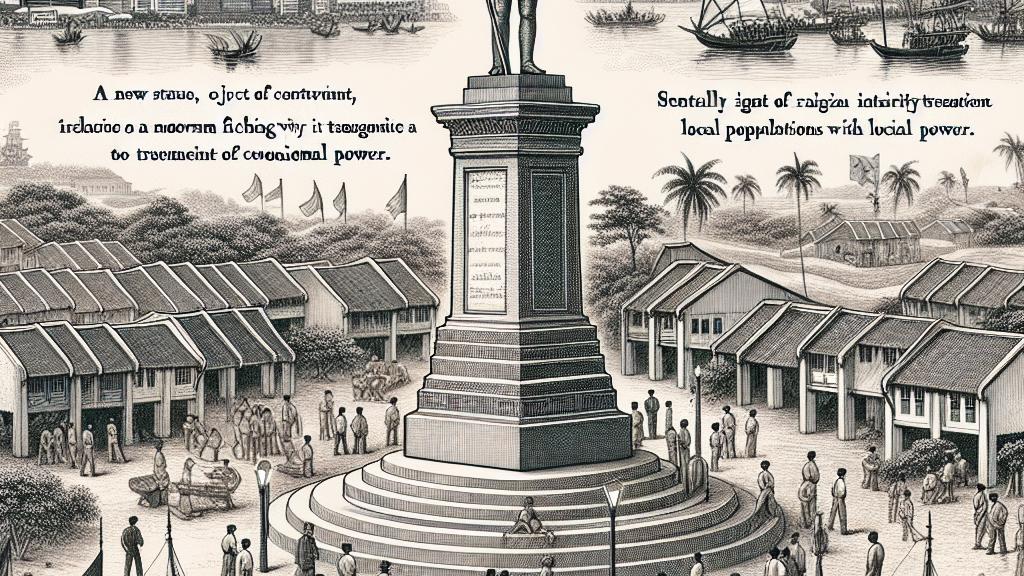Raffles Revisited: Singapore's Fight Over Colonial Glory!
Overview
- Singapore grapples with its colonial legacy amidst global conversations.
- A new statue of Sir Stamford Raffles sparks intense public debate.
- The discussion focuses on reconciling historical narratives with contemporary values.

Understanding Raffles' Historical Significance
The legacy of Sir Thomas Stamford Raffles is inextricably linked to Singapore’s identity as a nation. Often credited with founding modern Singapore in the early 19th century, Raffles' actions are framed by many as pivotal in transforming the island from a modest fishing village into a bustling port city crucial for global trade. His policies and vision for Singapore are typically portrayed in a positive light, manifesting in extensive public commemorations, such as statues, streets, and educational narratives. However, this conventional portrayal has faced increasing scrutiny, particularly with the recent unveiling of a new statue at Fort Canning Park. The installation has become a symbol of contention, igniting widespread discussions about the complex legacy of colonialism and its implications, especially regarding racial inequality and the treatment of local populations under British reign.
The Controversy of Commemoration
The statue of Raffles has triggered intense debate among Singaporeans, reflecting a growing desire to reevaluate how history is remembered and honored. Proponents, including the statue's benefactor Tan Kee Wee, argue that Raffles deserves recognition for his contributions to urban planning and botany, suggesting that his legacy has overall benefited Singapore's development. However, critics point out that celebrating figures like Raffles often glosses over the darker elements of their legacies—specifically, the systemic oppression and marginalization of nonwhite residents during colonial rule. This complex issue has parallels in global discussions, where countries are confronting their colonial pasts and possibly dismantling monuments without critical reflection. In Singapore, the dialogue emphasizes the need to balance acknowledgment of historical achievements with a truthful representation of colonial impacts, asserting that no single narrative can encapsulate the multifaceted history of the island.
Creating a Reconciliatory Historical Narrative
As discussions surrounding the Raffles statue continue to unfold, they highlight a broader challenge facing Singapore's society: how to reconcile the complexities of its colonial past with its aspirations for the future. Minister Desmond Lee’s statement reflects this effort, encouraging citizens to examine their history with honesty while avoiding glorification of colonialism. Advocates for a renewed historical narrative call for Singapore to acknowledge the inequities and injustices of colonial practices explicitly. By fostering an inclusive dialogue, Singapore has the opportunity to construct a narrative that honors its achievements while also recognizing the diverse voices and experiences of all its people. As the nation progresses, these discussions can serve as a foundation for unity, allowing Singapore to embrace its full history, chart a path toward healing, and cultivate a future characterized by understanding and inclusivity.

Loading...